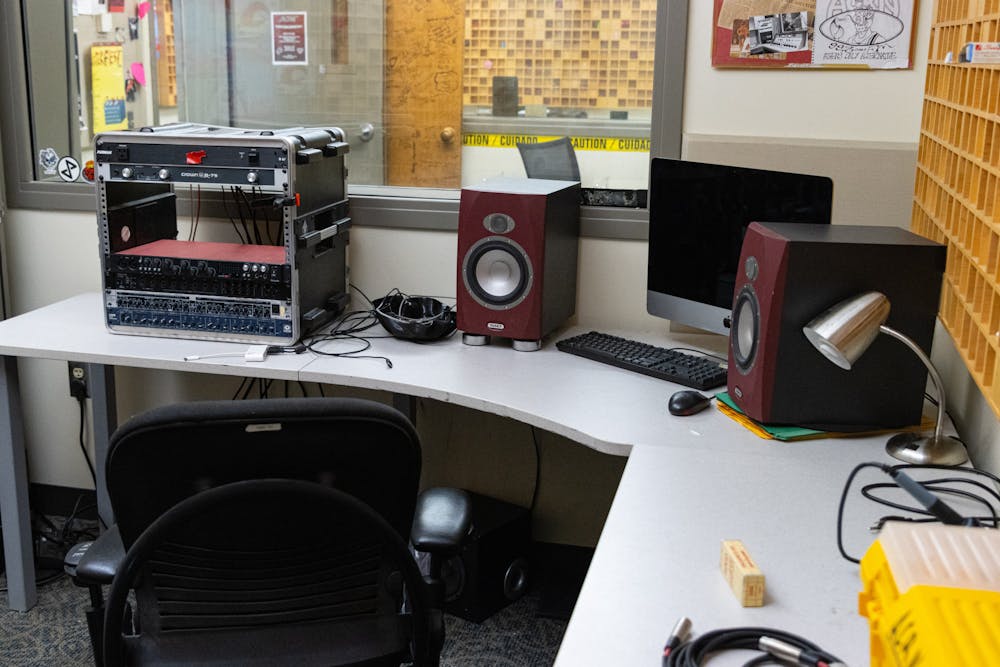In the music industry, the behind-the-scenes action in creating music is just as important as the recording artist. For students studying music production at Ohio University, knowledge of this behind the scenes helps them as artists and as future music professionals.
Josh Antonuccio, the director of the School of Media Arts and Studies, said the role of a music producer lies in shaping their clients’ visions.
“A music producer’s job is essentially to execute the vision of the artist to synthesize ideas, both creative and technical, so that on the other side of the recording, and mixing process, they have an assemblage of songs or a single song that matches as closely as possible to the imagination and kind of overall scope of where the artists want to go musically,” he said.
Entertainment organizations in Athens help create spaces for young music professionals to get a feel for what their future may look like. Luke Calder, a senior studying music production and the recording industry, co-founded the company Midnight Music with his friend, Nick Thompson, to give Athens musicians an opportunity to create and perform music.
“I created the company so I could perform live and give other people the same opportunity,” Calder said. “When I was a freshman and sophomore here at OU, those performing opportunities weren't really there. And that was frustrating for me because performing is absolutely my favorite part about making music.”
The Media Arts and Studies school at OU also provides students an opportunity to record and perform music in the form of Brick City Records. Brick City Records, a record label and capstone project for students in the music production program, provides experience in the music industry, Antonuccio said.
“In the capstone for the major, Brick City Records, the students as a part of their major get to select and then produce for artists of their choosing,” Antonuccio said. “So they're building resumes ready for experiences as they're in school. So there's a lot of engagement with the industry and with the actual process.”
Music production is a heavily male-dominated field; in the 2023 study “Lost in the Mix,” women and nonbinary producers were found to be vastly underrepresented, and men outnumbered them 19 to 1.
This doesn’t stop women and nonbinary people from pursuing music production, however. Sydney Tisdale, a senior studying music production and recording industry, has worked with other women in her major to create a more inclusive space.
“I'm a part of WIMI, which is the Women In Music Industry club,” Tisdale said. “It is a great space for women that are in this kind of thing to just make connections and network and also get outside of the school and meet people that are also women in the actual industry, which is really cool.”
Antonuccio and Calder both said there are multiple networking opportunities within the music production program at OU, pointing to things like South by Southwest and other trips in the Media Arts and Studies school. Calder, who also releases music under the name Auburn Hill, said as a student and performer networking in the program is very important to establishing a career.
“You work with people that have been in the industry and production program,” Calder said. "You work with musicians, you work with mixing engineers, you work with mastering engineers, you work with managers who work with industry professionals, people that you really got to get close to when they're in the program … they can help you to continue and be there for whatever you need.”
The versatility of a music producer is also undervalued, Tisdale said. Even if she enrolled in the music production program because she loves to perform music, she has learned there are more options than just performance.
“I love writing songs, I play the guitar and I sing, so that's pretty much what led me to go into (music production),” she said. “But now I'm seeing that there's a lot more opportunities and avenues for me to get into outside of those that I had started with.”






